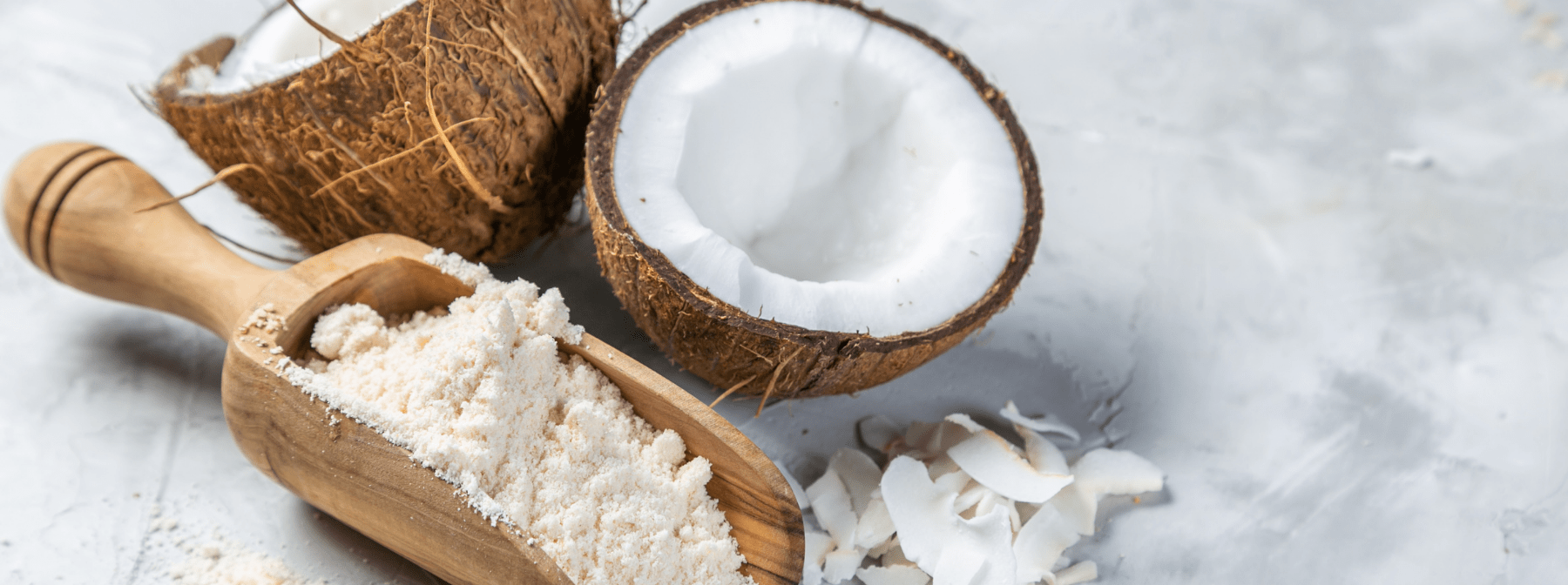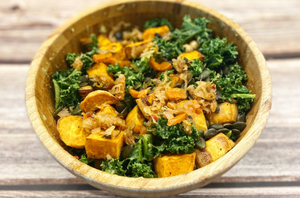
One of my weaknesses when eating a healthier diet is items made with wheat. I love most breads, cookies, pastries, cakes, pizza, etc. Not only are they tasty but wheat is one of the most popular foods in the American diet. Most people I know eat wheat in one form or another at every meal. The main reason is that it can be made into so many different foods; plus we have plenty of it as a nation so it’s fairly cheap to cook with. Just a few preservatives but the shelf life is fairly lengthy.
Some people, however, are allergic to wheat or cannot tolerate gluten-the protein in many grains. Others, like myself, try to limit the amount of wheat and grains in my diet to cut down on the carbohydrate intake (or empty calories) to improve their health. So, how do I bake all my tasty favorite foods without using much--if any--wheat flour.
For this reason, I have been experimenting with all kinds of flour products. Quinoa flour, Almond Flour, Oat Flour and Tapioca Flour. My newest discovery is Coconut Flour.
A little bit about Coconut Flour
I found that Coconut flour is a fairly good alternative by doing a little research. Coconut is naturally low in digestible carbohydrate, contains no gluten, and is cheaper than most other nut flours. Additionally it is loaded with health-promoting fiber and important nutrients. I forgot to mention that it tastes terrific!
Coconut flour is made from finely ground coconut meat with most of the moisture and fat removed. Coconut flour contains less carbohydrate than soy or other nut flours. It contains more calorie-free fiber than other wheat alternatives. Coconut flour also provides a good source of protein. While coconut flour does not contain gluten—the type of protein found in many grains—it does not lack protein. It contains more protein than enriched white flour, rye flour, or cornmeal and about as much as whole wheat flour.
Well armed with that information I headed to the health food store to buy me a bag of Coconut Flour. I had decided that I was going to make some donuts with my new donut pan that I got for Mother’s Day. Here’s where the big surprise came. I bought one pound of flour for $8.45 WOW now that’s a little expensive. Combine that with the sugar substitute that I had to buy and the coconut oil and these are some expensive donuts. I had my heart set on making some donuts that would be healthier so I decided to still purchase everything and give them a try. Well I’m here to report I wasn’t disappointed (I will post the recipe of the donuts later this week). The donuts baked up light and fluffy and full of sweet flavor (unlike when you use some of the other flour substitutes that don’t have wheat in them).
So here’s the downside of using Coconut Flour
First, it’s expensive. I think I calculated that these donuts cost me about $2 each. Second, they do reduce the calories from a regular deep fried donut (Krispy Kreme Donuts are around 400 Calories) coming in just under 200 calories. They aren’t that any fewer calories than making a baked donut with wheat flour. But if you take into consideration that coconut flour is better for you and your digestive system then that becomes a positive.
In the end, I decided that I will use Coconut flour again in the future but it will be for special desserts, not my everyday baking. For now, I’m still the happiest with the oat flour unless someone can share with me another flour to try.









